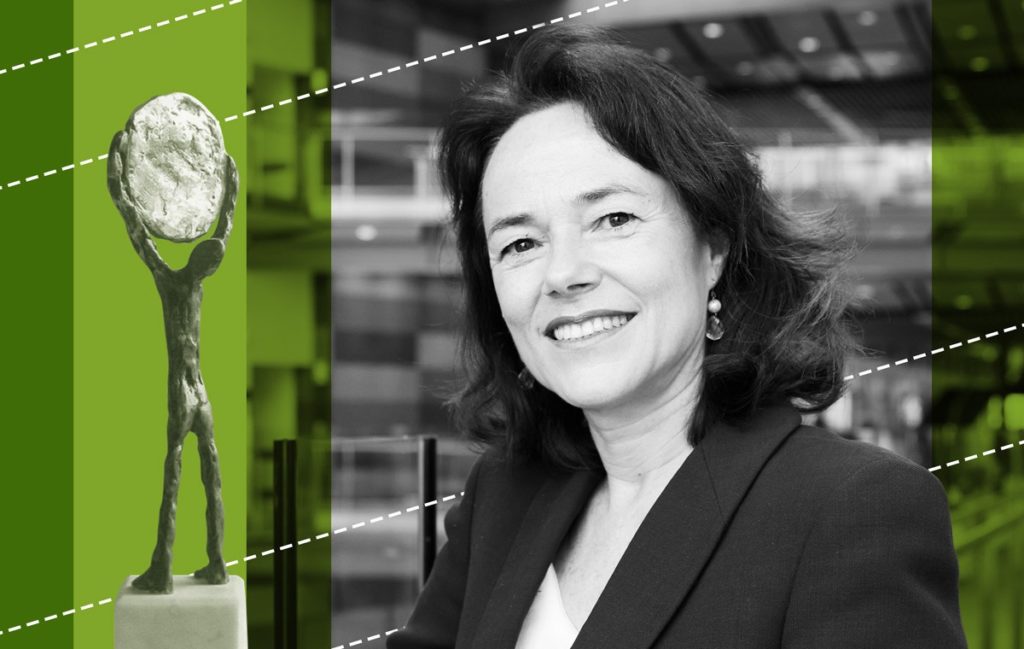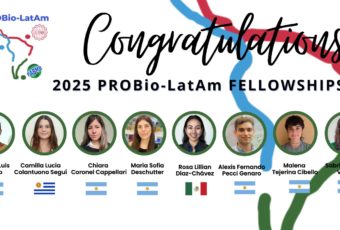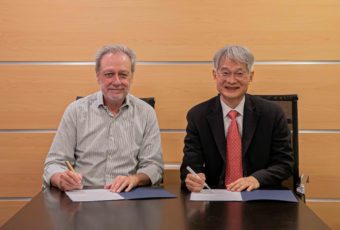
9 September 2025 – EMBO and FEBS announce Carola García de Vinuesa as the recipient of the 2026 FEBS | EMBO Women in Science Award. She is recognised for her internationally renowned discoveries in the areas of antibody responses and the causes of autoimmunity, and for pioneering the exploration of rare gene variants in adults and children with autoimmune diseases.
“I feel immensely honoured to receive this award,” said Carola García de Vinuesa, Principal Group Leader and Assistant Research Director at the Francis Crick Institute in London, UK. “This award celebrates the achievements of the many dedicated scientists in my lab and our collaborators, who have worked together with perseverance, overcoming many challenges, united by a passion for discovery and a shared commitment to understanding the causes of human disease.”
“FEBS is honoured to award the Women in Science Award to Prof. Carola García de Vinuesa for her ground-breaking work in immunology,” commented FEBS Secretary General Miguel A. De la Rosa. “We in FEBS are proud of this award, which is designed to celebrate role models and break down stereotypes for future generations of scientists. The award is indeed an important vehicle for affirming the excellence of science by honouring significant scientific achievements and helping to ensure that they are cherished and not forgotten”.
“EMBO congratulates Carola García de Vinuesa on receiving the 2026 FEBS | EMBO Women in Science Award. It recognizes her inspiring discoveries in immunology and her clear dedication to public engagement. We are delighted that she joins our community and look forward to her continued contributions to science and society,” commented EMBO Director Fiona Watt.
The award not only honours recent scientific achievements but also highlights the recipient’s broader impact as a role model within the life sciences community, in particular García de Vinuesa’s unique contribution to public engagement. She brought science, specifically human genetics, into the public eye through her involvement in the Kathleen Folbigg case. The Australian mother had been wrongly imprisoned for the deaths of her four children, until genetic research by García de Vinuesa and her colleagues changed the course of the case.
“Carola’s scientific and community contributions have been extraordinary,” said Caroline Dean, chair of the FEBS Women in Science working group and the Women in Science Award selection panel. “She is a truly deserving winner of this prize.”
The award will be presented at the 50th FEBS Congress in Maastricht, the Netherlands, taking place from 4 to 8 July 2026. García de Vinuesa will deliver a plenary award lecture and participate in a lunch event with junior scientists attending the Congress. She will also receive a bronze statuette, a commemorative certificate, and a prize of 10,000 euros.
The FEBS | EMBO Women in Science Award is a joint initiative that recognises and celebrates outstanding female scientists working in Europe. It highlights both research excellence over the past five years and a commitment to supporting women in science through leadership, mentorship and public outreach.
About Carola García de Vinuesa
Carola Vinuesa was born in Cadiz (Spain) and obtained a medical degree at the University Autonoma of Madrid. She undertook clinical training in the UK and was awarded a PhD by the University of Birmingham (2000). As a Wellcome Trust International Travelling Prize Research Fellow, she did postdoctoral work in the Australian National University (ANU), where she became a group leader in 2006, Professor of Immunology in 2010, and Head of the Department in 2011. In 2014 she founded and co-directed the Centre for Personalised Immunology, an NHMRC Centre of Research Excellence, as well as a sister centre in Shanghai Renji Hospital. Since late 2021, she has been Assistant Research Director at The Francis Crick Institute (London, UK). Her research has contributed to a better understanding of the complex interactions of cells and genes that regulate the production of protective antibody responses and how abnormalities that interfere with this process contribute to the development of autoimmunity. García de Vinuesa currently lives in London with her two daughters.

